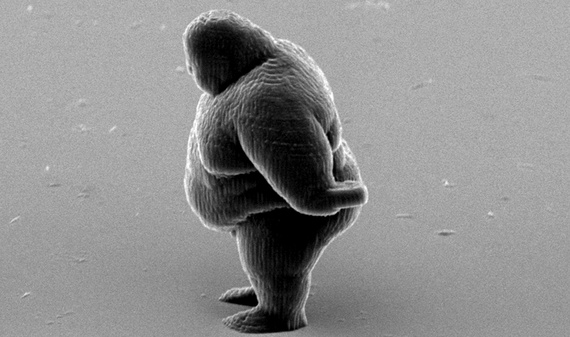I prefer high maintenance people because I know if they are concerned with their appearance they will take good care of themselves and make sure to look their best. As you say 20 years from now they can have work done.
Abdominoplasty - tummy tuck :cheers:
Cryolipolysis - fat freezing :cheers:
Rhinoplasty - nose job
Rhytidectomy - face lift
Genioplasty - chin implant :cheers: :cheers:
Brachioplasty - arm lift
Posts made by nordicblue
-
RE: Handsome face or big dick?posted in Chit Chat
-
RE: Sex with married menposted in Sex & Relationships
How did he know you were gay? Did you tell him or do you behave more flamboyantly? How did you know he was gay?
-
RE: How Being Fat Makes You Stupidposted in Health & Fitness
I would concede that you may know how HIV works, but not immunology entirely or else why go to medical school or the doctor. Secondly, your doctor and drugs like abacavir have kept you alive. Also, the same care that keeps you alive, should have been the same care that prevented it from happening in the first place.
-
RE: Why I Despise The Black Gay Porn Industryposted in Rants & Raves
you don't like that category. Maybe people fetishize doing it with a thug. Also, maybe the actors do not view themselves that way. I am going to have to watch the blacksonboys now that you say that.
-
RE: Interracial marriageposted in Civil Unions & Marriage
If that works for you. I certainly do not "fetishize" people who are not attractive to me. :puke:
-
RE: Marriage and taxesposted in Civil Unions & Marriage
They are not tax breaks in my eyes. Older couples are divorcing and staying together because they get more money indivudally from social security than together as a married couple.
-
RE: Obesity Causes Dementiaposted in Health & Fitness
I suppose the point is moot. Either you are obese and you will choose to stay that way or you are not overweight and there is no cause for alarm. Being overweight causes more harm than we currently know, these articles serve as a precaution to fast food bingers.
-
RE: How Being Fat Makes You Stupidposted in Health & Fitness
I have been living with HIV for about 5 years now… Immune system functions are not something new to me at all.
Having HIV for 5 years does not make one an expert in immunology. Before I start with answering questions, it should be intuitive and extremely obviously that obesity and heaviness, be it genetic or self-induced, is bad for your health in previous post I wrote there Class I obesity shaves 10 years from your life and Class III obesity shave up to 21 years from your life regardless of why you are obese.
There are obesogenic interactions from genes. See POMC proopiomelanocortin gene which regulates the melanocortin superfamily MC1R, MC2R, MC3R, MC4R, MC5R.
http://www.ncbi.nlm.nih.gov/gene/5443The web address shows a genetic interaction for POMC and the mutations which can cause obesity. This being said, just because it is the fault of your gene does not make it healthy. It just means you have undesirable genes, and you have been dealt a bad hand and you will have to take extra precautions.
Also, the article is a cautionary tale, if one chooses to binge eat or not to lose weight that's their prerogative. They reap what they sow.
-
RE: Can gay people change their sexual orientation or gender identity? - See more atposted in Religion & Philosophy
No one was talking about reparative therapy. Try googling pharmacogenetics.
-
Obesity and Gastrointestinal Disorders in Childrenposted in Health & Fitness
J Pediatr Gastroenterol Nutr. 2014 Dec 9
Abstract
Obesity in children has become a global pandemic over the past decade. Recent studies have reported an association between obesity and functional gastrointestinal disorders. In addition, obesity is also becoming increasingly recognized at diagnosis of organic gastrointestinal diseases such as celiac disease and inflammatory bowel disease. An awareness of all possible complications and associations of obesity by the practicing physician is crucialto provide comprehensive care to obese children. This article reviews the current data on the association between obesity and various common gastrointestinal disorders. The possible mechanisms and the clinical significance of this association are also discussed.
-
Obesity during pregnancy causes gestational and birth complicationsposted in Health & Fitness
Rev. Bras. Ginecol. Obstet. Vol 36 No 11 pp 509-511
-
RE: Obesity Causes Dementiaposted in Health & Fitness
http://www.thelancet.com/journals/laneur/article/PIIS1474-4422%2814%2970085-7/abstract
http://www.ncbi.nlm.nih.gov/pubmed/23401370
Full text article here http://onlinelibrary.wiley.com/doi/10.1002/oby.20037/pdfhttps://fightdementia.org.au/sites/default/files/20081100_Nat_SUB_NatPrevHlthTaskforce.pdf
http://www.chron.com/news/health/article/New-study-links-middle-age-obesity-and-dementia-5706580.php
http://www.nia.nih.gov/alzheimers/announcements/2009/10/more-findings-link-obesity-and-dementia
-
RE: How Being Fat Makes You Stupidposted in Health & Fitness
Call me skeptical if you must, but there are a few things that came to my mind when I read the article.
The first and biggest thing that comes to my mind is how one thing causes another. Simply put, while they may find a co-relation, I fail to understand how a co-relation implies a causal link. For example, you can establish a co-relation between drinking an espresso and being obesity, but that doesn't mean that drinking an espresso inexorably leads to becoming obease. Granted, I get the connection for obvious reasons, but some of the other references seem a little suspicious to me.
One such example is the link between the T cells (actually referred to as CD4 or CD8 cells) and obeasity just doesn't seem plausible to me. The fact that the original publisher refers to them as "T" cells only makes me wonder about how much scientific credibility that the study actually has…. Just sayin'
Even though a correlative link does not imply a causal link, all causal links do in fact imply a correlative link; therefore, it is highly likely if there's is high comorbidity then there is a high probability of causality. Also I studied logic and biochemistry in university. You should be prepared to debate your statements regarding T cells. Einstein said a little knowledge is a dangerous thing because people have just enough rope to hang themselves. Thirdly, you shouldn't point out a false cause fallacy without a true understanding of logical tautologies…Just sayin'
http://www.nia.nih.gov/alzheimers/announcements/2009/10/more-findings-link-obesity-and-dementia
http://www.chron.com/news/health/article/New-study-links-middle-age-obesity-and-dementia-5706580.php
https://fightdementia.org.au/sites/default/files/20081100_Nat_SUB_NatPrevHlthTaskforce.pdfNCBI
http://www.ncbi.nlm.nih.gov/pubmed/23401370
Full text article here http://onlinelibrary.wiley.com/doi/10.1002/oby.20037/pdf -
5 Ways Obesity Ages You Fastposted in Health & Fitness
5 Ways Obesity Ages You Fast

The link between obesity and various diseases has been well-established. Type 2 diabetes and cardiovascular disease are the best recognized diseases that are linked directly to obesity.
But there’s a long list of diseases that are triggered or accelerated by the adverse biological processes caused by obesity. These include many cancers, fatty liver disease, and Alzheimer’s disease.
I discuss elsewhere how visceral fat – the type that’s stored in the bellies of most obese people as well as those whose overall weight is considered “normal” (see “Belly Fat – The Enemy Within“) – produces dangerous cytokine proteins that wreak inflammatory havoc on nearby organs.
This helps explain the higher rates of type 2 diabetes (pancreas injury), cardiovascular disease (heart injury), fatty liver disease (liver damage), kidney disease and a host of other diseased bodily processes directly attributable to excess visceral fat in the belly (“see “Obesity, Skinny-Fat & Disease” for more on this).
In short, obesity – including just abdominal obesity in those of otherwise normal (non-obese) weight – accelerates the aging process, rendering those who qualify old before their time. Fortunately, unlike aging, obesity can be reversed – but it requires motivation.
For some people, a better understanding of how obesity and excess belly fat accelerates their aging process may provide that motivation. As the fabulous Mills Brothers once sang, “No one wants to be…Old at 33″.
So let’s look briefly at five ways obesity accelerates aging and leads to higher risk for diseases normally associated with much older adults.
5 Ways Obesity Makes You Old
There are more than five ways that obesity makes you old before your time, but I’ll list just five of the more obvious ones for now.
1. Less Physical Activity – Excess weight puts greater stress on knee joints and accelerates the development of painful osteoarthritis that limits physical activity. This results in a vicious cycle of physical decline that normally occurs in much older adults limited by osteoarthritis associated with advanced years;
2. Less Sleep – Sleep apnea is commonly associated with obesity, as are other forms of sleep deprivation. Like reduced physical activity, this feeds on itself by disturbing one’s hormonal balance that induces further over-eating and poorer sleeping patterns. This deprives the body of the essential restorative powers that sound sleeping patterns produce;
3. Increased Stress – Less sleep leaves us less capable of coping with life’s stresses. This again feeds on itself as stress-related over-eating is common. Stress itself is directly associated with virtually all disease processes, as it is inherently pro-inflammatory and lowers one’s immune resistance to disease;
4. Less Protective Omega-3 Fatty Acids – This and the final way that obesity accelerates the aging of your body and mind have to do with the poor nutritional quality of most diets consumed by obese individuals (there aren’t many obese vegetarians, after all). A recent study demonstrated that even those over age 65 benefit by increasing their intake of fish rich in healthful omega-3 fatty acids. It’s likely that most obese individuals are deficient in these omega-3 oils that were found to add 2.2 years of life to the older adults in this study – meaning they lose out on this life-extending benefit; and
5. Less Protective Vitamin D – Vitamin D at certain levels has been associated with lower risk of many diseases, including cardiovascular diseases (see “Vitamin D – How Much Is Too Much” for more). Not only are the diets of most obese people likely to be deficient in vitamin D, but this essential vitamin is stored in body fat. This means that less of it circulates throughout the bodies of obese individuals, depriving them of its protective benefits. -
Obesity Causes Dementiaposted in Health & Fitness
It causes dementia. Being obese in your middle age means you could be four times as likely to develop dementia when you’re older, according to a 2011 study in the journal Neurology. Researchers tracked the weight of 6,500 people over the age of 65 and found a link between those who were obese and those who had dementia. It’s believed that obesity-induced inflammation could actually kill part of your brain’s circuitry that's needed for memory.
-
How Being Fat Makes You Stupidposted in Health & Fitness
How Being Fat Makes You Stupid

Packing on the pounds isn’t just bad for your body—it’s bad for your brain. According to researchers at Carnegie Mellon University, the brains of obese people work harder than those of normal weight people to achieve the same results.
Researchers quizzed 29 people who were having fMRIs and noticed a trend: The connections between the brain parts responsible for memory and decision-making were hyperactive in overweight people, but functioned normally in average weight people, says study author Timothy Verstynen, Ph.D., a professor at Carnegie Mellon University.
That’s because high blood pressure and inflammation—which go hand-in-hand with obesity—irritate your brain’s communication systems, making it harder for messages to come through, says Verstynen. It’s like your brain is trying to make a call when the phone lines are down.
And it’s a vicious cycle: The damage is particularly bad in areas responsible for controlling impulsive behaviors, like skipping dessert, says Verstynen. So your brain is making you fat (giving into the dessert), and then being fat is changing your brain, he adds.
Here are three more ways that being fat—and eating fatty food—messes with your brain. (Get rid of your gut for good with Speed Shred, the all-new workout DVD series from Men's Health!)
1. It makes you less manly. Say goodbye to your T levels if you’re obese. A 2012 study in the journal Clinical Endocrinology found that testosterone levels in obese teenagers were 40 to 50 percent lower than those of healthy guys the same age. That’s because fat cells can convert testosterone into estrogen and interfere with how your brain calls the production of more testosterone. And low levels of the hormone can do everything from quash your sex life by lowering your libido to weakening your muscles. (Want to boost your levels? Pick up Testosterone Transformation to build muscle, boost sexual vitality, and reclaim your mental edge!)
2. It gives you the blues. A 2010 study of 58,000 people found that obesity increases your risk of depression by 55 percent. Blame both physiology and psychology: Obesity causes inflammation, which research has shown can cause depression by damaging the brain’s circuitry. And the not-so-secret culprit? Fast food. According to a 2012 report in Public Health Nutrition, the top 25 percent of fast food eaters are more than 50 percent likely to suffer from depression.
3. It causes dementia. Being obese in your middle age means you could be four times as likely to develop dementia when you’re older, according to a 2011 study in the journal Neurology. Researchers tracked the weight of 6,500 people over the age of 65 and found a link between those who were obese and those who had dementia. It’s believed that obesity-induced inflammation could actually kill part of your brain’s circuitry that's needed for memory.
-
Obesity, Not Old People, Is Making Healthcare Expensiveposted in Health & Fitness
Obesity, Not Old People, Is Making Healthcare Expensive
A new report in the Journal of the American Medical Association clarifies some misconceptions about our medical system.
Olga Khazan Nov 14 2013, 8:30 AM ET

Since 1900, the average American lifespan has increased by 30 years, or by 62 percent. That nugget comes near the beginning of a new report taking stock of the U.S. healthcare system, published in the Journal of the American Medical Association this week, and it’s also pretty much the last piece of good news in it.
The study authors—a combination of experts from Alerion Advisors, Johns Hopkins University, the University of Rochester, and the Boston Consulting Group—take a point-by-point look at why healthcare costs so much, why our outcomes are comparatively poor, and what accounts for the growth in medical expenditures.
In the process, they brought to light a number of surprising realities that debunk popular misconceptions about health spending.
Here are some of the juiciest:
The aging population doesn't account for most medical spending.
Actually, chronic diseases, such as heart disease and diabetes, among people younger than 65 drive two-thirds of medical spending. About 85 percent of medical costs are spent on people younger than 65, though people do spend more on healthcare as they age.
“Between 2000 and 2011, increase in price (particularly of drugs, medical devices, and hospital care), not intensity of service or demographic change, produced most of the increase in health’s share of GDP,” the authors write.
The costliest disease with the fastest growth rate was hyperlipidemia—high cholesterol and triglycerides—for which spending grew by 14.4 percent annually between 2000 and 2010.
 | NOT
| NOT |
| | SCARRED FOREVER
| SCARRED FOREVER |
|